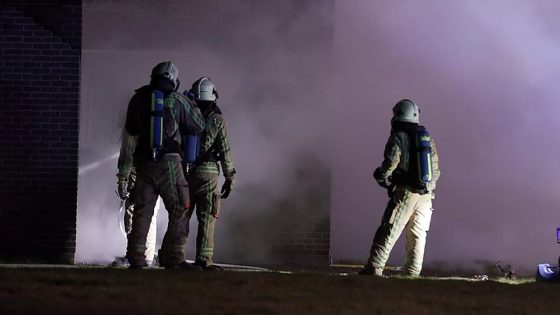The Kortessem garage fire case has sparked intense debate over the reliability of phone mast data in Belgian investigations. On 11 March 2021, at 4:20 am, firefighters rushed to a blaze that consumed a garage next to an elderly woman’s home on Graafbeemdenstraat. Despite severe damage to the garage, the adjacent house was largely spared, but the cause of the fire remained unclear.
- Brandweer reageerde op brand in garage
- Brandversnellers gebruik vastgesteld door experts
- Telefoniegegevens twijfelachtig volgens verdediging
- Zoon ontkent betrokkenheid, geen motief gevonden
- Rechtbank spreekt zoon vrij wegens twijfel
- Mogelijke betrokkenheid moeder met mentale problemen
Initial findings showed no obvious signs of arson, but further investigation by a fire expert and a detection dog revealed traces of accelerants, suggesting the fire was deliberately set. The 60-year-old son of the woman became a prime suspect based on phone mast data placing his mobile near the scene. However, questions soon arose about the accuracy of this evidence, casting doubt on the investigation’s direction.
With the trial concluding on 2025-08-08 03:50:00, the court ultimately acquitted the son, highlighting uncertainties and alternative possibilities. What does this mean for future fire investigations in Belgium? And how reliable are phone mast records in proving guilt?
Does reliance on phone mast data risk wrongful accusations? This case shows the pitfalls of tunnel vision in investigations and the importance of comprehensive analysis. Key points include:
- Phone mast data can be inconsistent and misleading, as shown by impossible location jumps in the suspect’s records.
- No physical evidence like DNA or fingerprints linked the son to the fire.
- Alternative theories, including possible mental health issues of the elderly woman, were not fully explored.
- The garage’s easy access and sightings of a suspicious black BMW suggest third-party involvement.
As Belgian courts continue to navigate complex arson cases, this verdict highlights the necessity for balanced investigations and better forensic tools. Will authorities revise protocols to prevent similar controversies? Belgian citizens and legal professionals alike await clearer guidelines to safeguard justice in future fire-related incidents.






























